Break It Down
Let’s break down that spec and take a closer look at the components.
Visual Data Collector
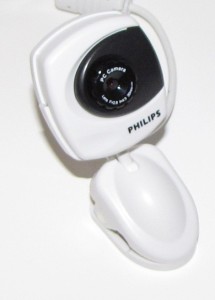
The Visual Data Collector is a standard PC USB Webcam. Hopefully it will meet my requirements. If not, I have a backup plan.
Computer Vision Textbook
I plan to use OpenCV to process the input from the Visual Data Collector. It seems fairly straightforward to use, even when the task is complex. Of course, I haven’t actually programmed anything using it yet, so we’ll see. I’ve skimmed the book and have some idea of where to start.
Communications Interface
The Newtonian Motion Decoder and Processor will talk to the Real Time Autonomous Interaction Device over Bluetooth. I’ve never programmed anything using Bluetooth. I pretty much stick to TCP/IP. This will be an interesting change.
Real Time Autonomous Interaction Device
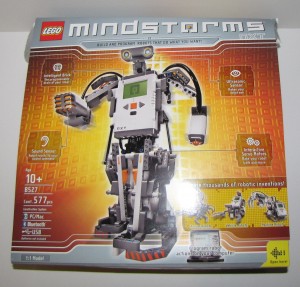
The Realtime Autonomous Interaction Device will be constructed using a Lego Mindstorms robotics kit. I bought this about a year ago and only built the sample car thing that everyone builds first. I’ve never tried anything on my own. Until now.
Simulator Control Interface
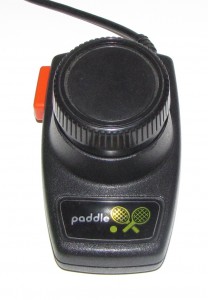
This device houses an analog potentiometer, which will function as the interface to the Newtonian Motion Simulation.
Low-Resolution Newtonian Motion Simulator
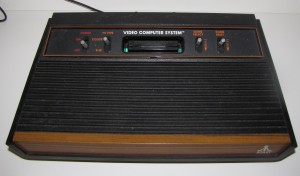
This Video Computer System excels at running simulations of Newtonian motion, so I have chosen it as the primary Newtonian Motion Simulator for this project.
Newtonian Motion Software
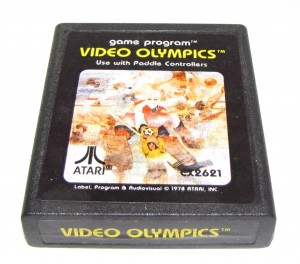
The read-only memory chip on this circuit board contains fifty different kinds of Newtonian motion simulations, however, for the purposes of this project, I will only be focusing on one of them.
Hardware
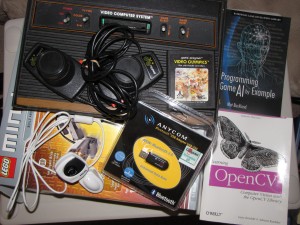
Here’s a jumble of most of the equipment I’ll be using during this project. Not pictured are the display screens for the Low-Resolution Newtonian Motion Simulator and the primary and secondary Decoder and Processor devices, as they are not very portable.
So, there you have it!

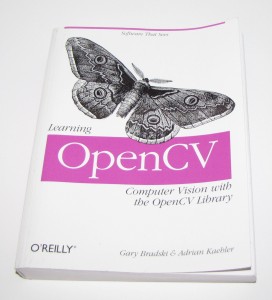
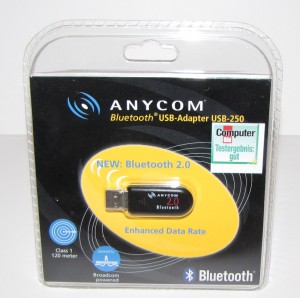
0 comments
Kick things off by filling out the form below.
Leave a Comment